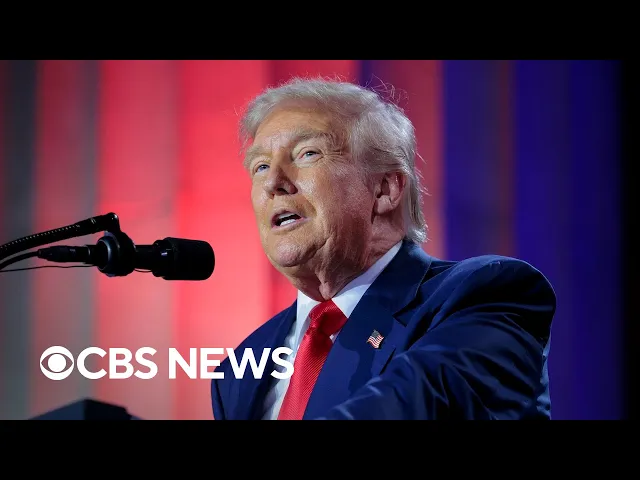Trump lays out AI Action Plan during keynote address at summit in Washington, D.C.

Trump's AI plan: America first in innovation
In a significant policy address at a Washington D.C. summit, former President Donald Trump outlined his vision for America's artificial intelligence future, positioning himself as both a champion and regulator of this transformative technology. Trump's remarks represent his most comprehensive stance on AI to date, blending his trademark "America First" approach with acknowledgment of both AI's enormous potential and its risks. At the core of his message was a clear battle line: the United States must not surrender its AI leadership to China or other competitors.
Key Points from Trump's AI Address
-
Regulatory philosophy: Trump advocated for a balanced approach to AI regulation—enough oversight to manage risks without stifling innovation through excessive government intervention. His position centers on preventing "unelected bureaucrats" from controlling AI development.
-
National security focus: The former president emphasized AI's critical role in military applications and national defense, connecting technological leadership directly to America's position on the world stage. He framed the AI race primarily as a competition with China.
-
Immigration policy connection: Interestingly, Trump linked AI policy to immigration, suggesting that foreign talent should benefit America first, with AI expertise being a factor in merit-based immigration decisions.
Expert Analysis: The Regulatory Paradox
The most insightful aspect of Trump's address was his attempt to resolve the inherent tension in conservative technology policy: how to maintain American technological dominance while adhering to free-market principles that resist government intervention. This matters tremendously in the current AI landscape, where companies are simultaneously asking for regulatory clarity while fearing innovation-killing restrictions.
Trump's solution appears to be selective regulation—strong government involvement in areas that directly affect national security or American competitiveness, coupled with a hands-off approach to private sector innovation. This bifurcated strategy represents a distinct alternative to the Biden administration's more comprehensive regulatory framework being developed through executive orders and agency actions.
Beyond the Speech: Context and Implications
What Trump didn't address is how his AI policies would interact with existing international frameworks. The European Union has already established the AI Act, creating the world's most comprehensive AI regulatory system. Any American AI policy—whether from Trump or another administration—will need to navigate a global landscape where other major economies have already set rules.
The speech also revealed a subtle shift in Trump's technology
Recent Videos
How To Earn MONEY With Images (No Bullsh*t)
Smart earnings from your image collection In today's digital economy, passive income streams have become increasingly accessible to creators with various skill sets. A recent YouTube video cuts through the hype to explore legitimate ways photographers, designers, and even casual smartphone users can monetize their image collections. The strategies outlined don't rely on unrealistic promises or complicated schemes—instead, they focus on established marketplaces with proven revenue potential for image creators. Key Points Stock photography platforms like Shutterstock, Adobe Stock, and Getty Images remain viable income sources when you understand their specific requirements and optimize your submissions accordingly. Specialized marketplaces focusing...
Oct 3, 2025New SHAPE SHIFTING AI Robot Is Freaking People Out
Liquid robots will change everything In the quiet labs of Carnegie Mellon University, scientists have created something that feels plucked from science fiction—a magnetic slime robot that can transform between liquid and solid states, slipping through tight spaces before reassembling on the other side. This technology, showcased in a recent YouTube video, represents a significant leap beyond traditional robotics into a realm where machines mimic not just animal movements, but their fundamental physical properties. While the internet might be buzzing with dystopian concerns about "shape-shifting terminators," the reality offers far more promising applications that could revolutionize medicine, rescue operations, and...
Oct 3, 2025How To Do Homeless AI Tiktok Trend (Tiktok Homeless AI Tutorial)
AI homeless trend raises ethical concerns In an era where social media trends evolve faster than we can comprehend them, TikTok's "homeless AI" trend has sparked both creative engagement and serious ethical questions. The trend, which involves using AI to transform ordinary photos into images depicting homelessness, has rapidly gained traction across the platform, with creators eagerly jumping on board to showcase their digital transformations. While the technical process is relatively straightforward, the implications of digitally "becoming homeless" for entertainment deserve careful consideration. The video tutorial provides a step-by-step guide on creating these AI-generated images, explaining how users can transform...
